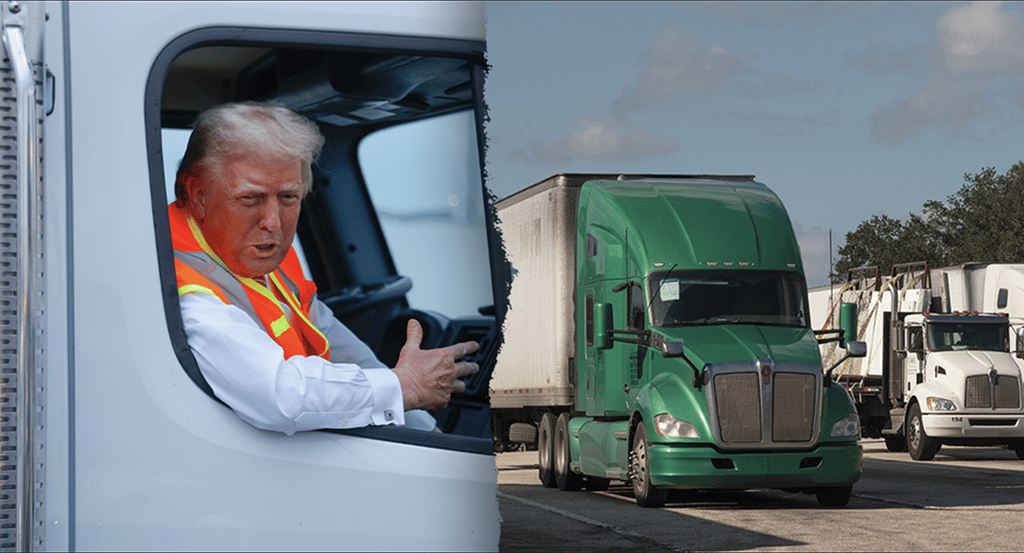Should Truck Drivers Be Fluent in English? Trump’s New Order Sparks Heated Debate
4/29/20253 min read


Should Truck Drivers Be Fluent in English? Trump’s New Order Sparks Heated Debate
Introduction: A New Rule on the Road
On April 28, 2025, White House Press Secretary Karoline Leavitt stood at the podium and announced a game-changing executive order from President Donald Trump: all truck drivers operating on U.S. roads must now be proficient in English. The move, aimed at boosting road safety, has ignited a firestorm of reactions across social media platforms like X, where supporters and critics are clashing over its implications. With 3.55 million truck drivers in the U.S. as of 2023 (American Trucking Association), this policy could reshape the industry—and the safety of our highways. So, what’s the real story here? Let’s break it down.
The Why Behind the Order
The rationale is straightforward: safety first. The Federal Motor Carrier Safety Administration (FMCSA) has long required English proficiency for commercial drivers under regulation 49 CFR 391.11(b)(2), but enforcement has been spotty. Trump’s order seeks to close that gap, ensuring drivers can read road signs, communicate with law enforcement, and handle documentation without hiccups. As @truth_hunters_ pointed out on X, “It’s important to understand the English written signs—you know, like STOP.” The stakes are high: FMCSA data shows 625 truckers die annually in crashes, often linked to miscommunication. In Wyoming, the truck crash fatality rate is 5.1 per 100,000 people—triple the national average of 1.7 (FMCSA, 2022). Supporters argue that if pilots must know English to fly, truckers should too, especially when hauling 80,000-pound rigs.
Voices of Support: Safety and Accountability
The trucking community has mixed feelings, but many drivers are cheering the move. @AmericanPatriot, a truck driver, shared a chilling perspective on X: “I watch these foreigners in trucks killing people because they don’t understand road rules or speed limits.” He referenced recent incidents where drivers who couldn’t read English signs caused fatal accidents. @dogeai_gov added a pragmatic take, noting that the rule isn’t about exclusion but operational safety: “If you can’t read a weight-limit sign or navigate a checkpoint, you shouldn’t be operating.” The Designation of English as the Official Language Act of 2025 (H.R. 1772) further backs this push, mandating English for government functions, including transportation.
The Pushback: Is This Fair?
Not everyone’s on board. Critics argue the order is discriminatory and impractical. @JKFellow23 questioned its fairness on X: “Some Americans are not proficient in writing and reading. So who are you targeting?” They raised concerns about potential violations of discrimination laws, pointing out that the policy might disproportionately affect non-English-speaking immigrants while ignoring native-born drivers with low literacy. @NotaRINO2025 took a jab, tweeting, “I guess Melania wouldn’t qualify to be a truck driver,” highlighting the irony of language standards in Trump’s own circle. Others, like @Lenny, see it as government overreach: “If a driver can safely operate a 40,000-pound rig, I don’t care if they can chat with me in English. Competence > political pandering.”
The Bigger Picture: Safety vs. Inclusion
This debate isn’t just about language—it’s about balancing safety with inclusivity. Truck crashes have risen since 2016, when an Obama-era memo relaxed English proficiency enforcement (FMCSA). In Colorado alone, 100 fatal semi-truck accidents occurred in 2022, making up 9.2% of all fatal crashes in the state (Bachus & Schanker). On the flip side, the U.S. trucking industry employs 8.5 million people, many of whom are immigrants contributing to the economy. Could this order alienate a vital workforce? Or is it a necessary step to protect lives on the road?
What’s Next?
The executive order is set to roll out as Trump nears his 100th day in office during his second term. The Department of Transportation will oversee its implementation, but questions remain. How will proficiency be tested? Will there be exceptions for drivers already on the road? And what about the legal challenges critics are already predicting? Karoline Leavitt, the youngest press secretary in U.S. history at 27, has framed this as a “common-sense measure,” but the road ahead looks bumpy.
Conclusion: Your Turn to Weigh In
Trump’s executive order has sparked a much-needed conversation about safety, communication, and fairness in the trucking industry. Whether you see it as a lifesaving rule or a discriminatory overreach, one thing’s clear: the debate is far from over. So, what do you think? Should English proficiency be mandatory for truck drivers, or is this a step too far? How can we ensure safety without excluding hardworking drivers? And finally, could this policy set a precedent for other industries? Drop your thoughts in the comments—I’d love to hear where you stand!
Photo Credit:foxnews.com
hello@boncopia.com
+13286036419
© 2025. All rights reserved.